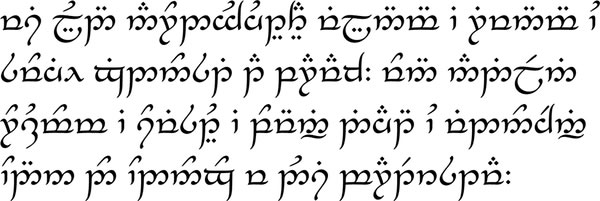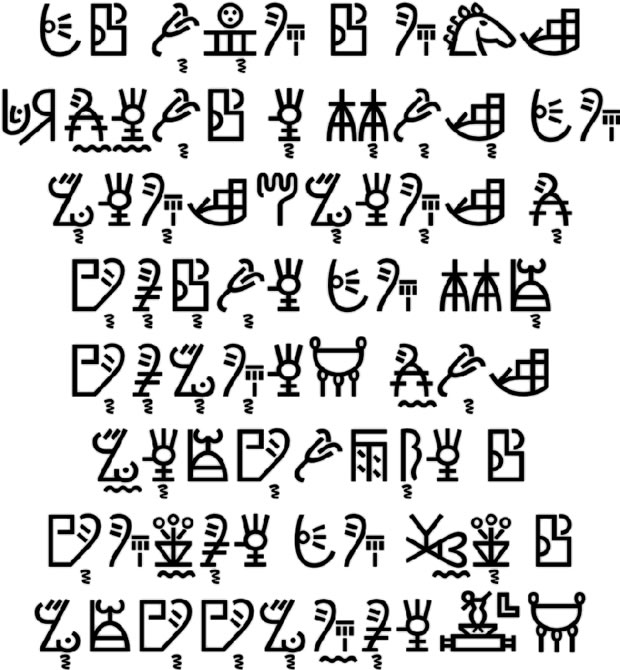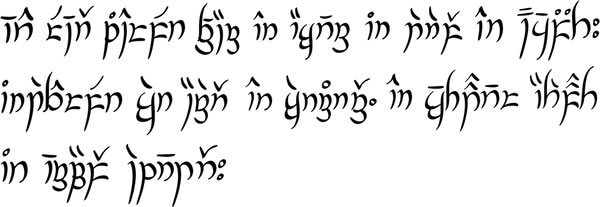Podcast: Play in new window | Download

Here’s the latest news from the world of Omniglot.
New language pages:
- Bafaw-Balong (lèfɔ́’, bàlòŋ), a Bantu language (or two closely-related languages) spoken in the Southwest and Littoral regions of Cameroon.
- Dciriku (Gciriku), a Central Sudanic language spoken mainly in southwestern Chad, and also in Nigeria.
- Kako (Mkako), a Bantu language spoken in Cameroon, the Central African Republic and the Republic of Congo.
New magical script: Alphabet of Metatron, a magical alphabet based losely on the Hebrew script.
New adapted script: Thaana for Arabic, a way to write Arabic with the Thaana (Maldivian) script devised by Aahan Kotian.

On the Omniglot blog we discover whether the word plateau is related to plate, platypus, plaza, pizza, place, flat and fold in a post called Little Dishes, and there’s the usual Language Quiz. See if you can guess what language this is:
Here’s a clue: this language is spoken in Micronesia.
The mystery language in last week’s language quiz was: Chaura (Sanënyö), a Nicobarese language spoken mainly on Chowra Island in the Indian union territory of the Andaman and Nicobar Islands.
In this week’s Adventure in Etymology, entitled Bottles, Boots and Butts, we find connections between words for bottle, butt, boot and other things in various languages.
It’s also available on Instagram and TikTok.
On the Celtiadur blog, there’s a new post entitled Cressy about words for cress, watercress and related things in Celtic languages, and I made improvements to the Lies and Deceit and Bodies posts.
For more Omniglot News, see:
https://www.omniglot.com/news/
https://www.facebook.com/groups/omniglot/
https://www.facebook.com/Omniglot-100430558332117
You can also listen to this podcast on: Apple Podcasts, Amazon Music, Stitcher, TuneIn, Podchaser, PlayerFM or podtail.
If you would like to support this podcast, you can make a donation via PayPal or Patreon, or contribute to Omniglot in other ways.
Radio Omniglot podcasts are brought to you in association with Blubrry Podcast Hosting, a great place to host your podcasts. Get your first month free with the promo code omniglot.












